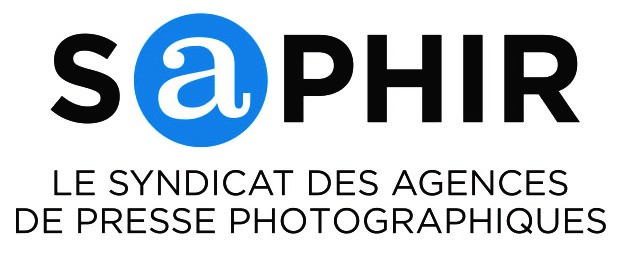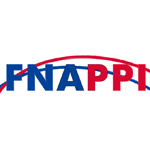RE: Creativity Works! calls on Member States to refrain from restricting rightholders’ exclusive rights in favour of certain online platforms; discussions on Copyright Directive must continue to resolve fundamental issues.
Dear Ministers,
Dear Deputy Permanent Representatives,
Dear Attaches,
Creativity Works!, a leading European coalition of the cultural and creative sectors, is extremely concerned about the direction taken in the latest round of discussions on the Directive on Copyright in the Digital Single Market, specifically on Article 13 (the so-called value gap; including Article 2), as well as Articles 3-5 (exceptions) and Articles 7-9 (out-of-commerce works).
How will the text proposed by the Presidency roll-back and weaken rather than strengthen the protection of rights holders?
The current wording proposed by the Bulgarian Presidency on Article 2, Article 13 and corresponding recitals, the so-called “value gap” provision, does not fulfil its intended purpose of allowing rights holders to better determine the conditions for – or to prevent – the use of their content. On the contrary, it would further strengthen the role of some already powerful content sharing platforms. It would limit existing rights and create a special copyright liability privilege for these platforms.
- It would limit the scope of the right of communication to the public by incompletely applying Court of Justice of the European Union (CJEU) case law and setting into stone in Article 13 only certain criteria developed by the Court. This approach would roll-back the CJEU’s case law, which has repeatedly confirmed that a broad interpretation of the right of communication to the public (CTTP) is necessary to achieve the main objective of the Copyright Directive, which is to establish a high level of protection for authors and rights holders. CW! recalls that the exclusive right of communication to the public, including the making available right, as enshrined in EU law (and further clarified by the Court), has emerged as the bedrock for the financing, licencing and protection of content, as well as its ultimate delivery to consumers in the online environment. The Court has also emphasised, in its recent judgments, that in order to determine whether there has been a CTTP, several complementary criteria must be taken into account, which are not autonomous, but are interdependent. Any proposals that entail a selective application of the Court’s jurisprudence, or that imply a narrowing of the scope of the right of CTTP, would be contrary to the protection required by current EU and international law.
- It would not fill a gap for rights holders, but rather create additional privileges for certain big content sharing platforms. Article 13(4) would create a new special limited liability regime for online content sharing service providers (“OCSSP”) who communicate to the public as it would exempt an OCSSP from liability when it has made “best efforts to prevent the availability of specific unauthorised work or other subject matter for which rightholders have provided it with information.” This provision would be another clear step backwards for rights holders and would favour certain online platforms. Under the current law, these platforms are already required to take measures with respect to specifically identified and notified works – not only to make “best efforts.” If they do not do so, they do not qualify for the liability privilege under Article 14 of the E-Commerce Directive.
- This proposal would severely undermine the European Commission’s intention to clarify rights holders’ possibilities to determine whether, and under which conditions, their works are used by certain online 2 platforms – or taken down. It would also constitute a major step backwardsfrom the case law of the CJEU on both the right of communication to the public and Articles 13 – 15 of the E-Commerce Directive. In short, the proposal would leave rights holders worse off than under current law!
CW! believes that it cannot be the intention of the European co-legislators to adopt legislation that would affect the marketplace in favour of certain online platforms at the expense of rights holders. We call on the Council to keep the scope of the important right of communication to the public fully intact. Copyright plays a central role for Europe’s creators and cultural sectors. We underline that this proposal is a once in a generation opportunity to strike the right balance between the interest of users, our cultural and creative ecosystem and the platforms giving access to creative works. In today’s text, the right balance is missing. Europe’s creators deserve thoughtful consideration. In addition to the problems outlined on Article 13, CW! continues to be concerned by the lack of progress made on exceptions and out-of-commerce works:
- Exceptions (Articles 3-5): It must be clarified that exceptions cannot be combined with each other (this would be allowed under Recital 20). It should be made clear that, consistent with the three-step test and international copyright norms, each exception and limitation to an exclusive right under copyright and related rights is to be interpreted restrictively as to its own beneficiaries, scope and purpose. Moreover, while each exception in the proposed Directive might be justified on its own merit and with a concise scope, beneficiaries of all these exceptions must have lawful access to the copyright protected content. This means acquired access with the consent of the rightholders. We ask Member States to address this and to provide reassurance that copyright will remain an incentive for creation and for investment in production, marketing and distribution.
- Specifically, on exceptions for TDM the optional TDM exception (Article 3a) is unacceptable: it has no specified beneficiaries, no obligation to store securely and to delete copies and no identified purpose. It would apply to all content and turn copyright on its head since copyright holders could only be protected by copyright law if they “expressly reserve” their rights. We call for a deletion of this proposed new exception which (appears to) benefit primarily internet giants to the detriment of the creative sector. We ask that the Council adopts a more balanced approach that is consistent with international copyright norms, especially considering existing licensing solutions.
- Out-of-commerce works (Articles 7-9): CW! believes that the Bulgarian Presidency should consider all existing systems and reflect specificities of each sector. We note that the definition of a ‘never in commerce work’ first proposed by the Estonian Presidency in Recital 25, and now unfortunately endorsed by the Bulgarian Presidency, also includes unpublished works. This goes against the respect of moral right of an author, and against a basic principle of copyright legislation.
Considering that the above points are still highly problematic, we urge Member States to continue work at technical level and refrain from agreeing on a Council General Approach at this point, without having addressed these fundamental issues that will undermine sustainable investment in content and cultural diversity.
We thank you for considering our concerns. Should you have any questions or comments, we remain at your disposal.
Sincerely yours,
Creativity Works!
About Creativity Works!:
Like-minded organisations, federations and associations from the European cultural and creative sectors have formed a coalition:
Creativity Works!. Our membership includes: • Association of Commercial Televisions in Europe (ACT) • Bundesliga • Center of the Picture Industry (CEPIC) • EUROCINEMA 3 • European Coordination of Independent Producers (CEPI) • European and International Booksellers’ Federation (EIBF) • European Writers’ Council (EWC) • Federation of European Publishers (FEP) • Federation of Screenwriters in Europe (FSE) • Independent Music Companies Association (IMPALA) • Interactive Software Federation of Europe (ISFE) • International Confederation of Music Publishers (ICMP) • International Federation of Film Distributors’ Associations (FIAD) • International Federation of Film Producers’ Associations (FIAPF) • International Union of Cinemas (UNIC) • International Video Federation (IVF) • La Liga • MEDIAPRO • Motion Picture Association (MPA) • the Premier League • Verband Privater Rundfunk und Telemedien e.V. (VPRT).








